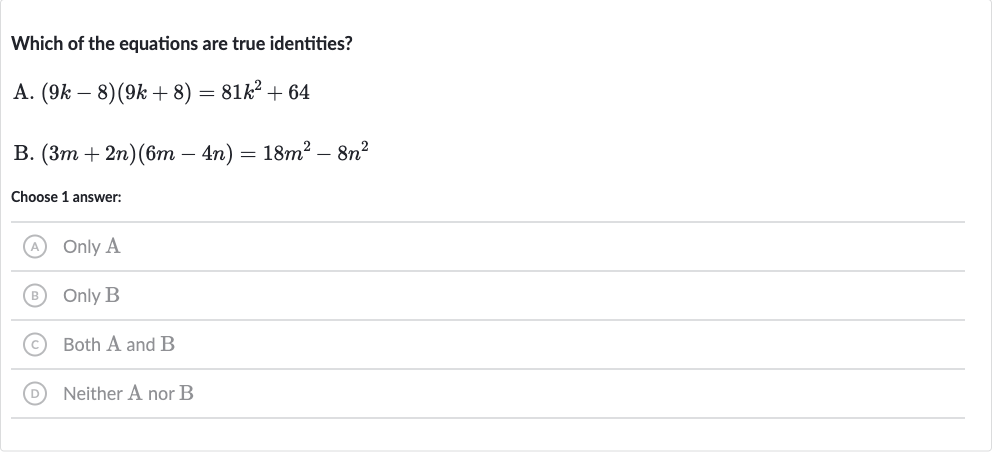Full solution
Q. Which of the equations are true identities?A. B. Choose answer:(A) Only A(B) Only B(C) Both A and B(D) Neither nor
- Expand A using formula: Let's expand : using the difference of squares formula, which is .
- Check B using FOIL method: So, .
- Simplify B using FOIL: Now let's check B: \(3m+n)(mn)\ using the FOIL method, which stands for First, Outer, Inner, Last.
- Compare expansions to given equations: So, .
- Verify as true identity: That simplifies to .
- Verify B as true identity: The middle terms, and , cancel each other out, so we're left with .
- Final answer: Now we compare our expansions to the given equations.
- Final answer: Now we compare our expansions to the given equations.For A, we got , which matches the given equation, so A is a true identity.
- Final answer: Now we compare our expansions to the given equations. For , we got , which matches the given equation, so is a true identity. For , we got , which also matches the given equation, so is a true identity too.
- Final answer: Now we compare our expansions to the given equations. For , we got , which matches the given equation, so is a true identity. For , we got , which also matches the given equation, so is a true identity too. Since both and are true identities, the correct answer is Both and .

